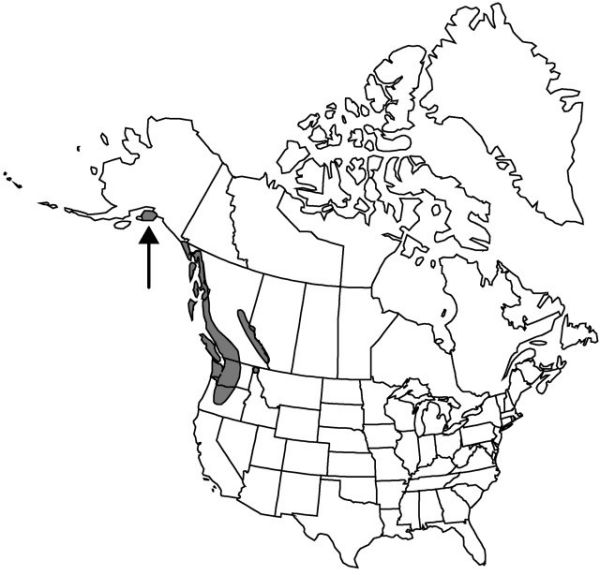Difference between revisions of "Triantha occidentalis subsp. brevistyla"
Novon 3: 279. 1993.
imported>Volume Importer |
imported>Volume Importer |
||
| Line 68: | Line 68: | ||
|publication year=1993 | |publication year=1993 | ||
|special status=Endemic | |special status=Endemic | ||
| − | |source xml=https:// | + | |source xml=https://bitbucket.org/aafc-mbb/fna-data-curation/src/2e0870ddd59836b60bcf96646a41e87ea5a5943a/coarse_grained_fna_xml/V26/V26_33.xml |
|genus=Triantha | |genus=Triantha | ||
|species=Triantha occidentalis | |species=Triantha occidentalis | ||
Latest revision as of 21:14, 5 November 2020
Stems 10–60 cm, glandular below inflorescence, glands dome-shaped to conical, 1/2–2 times longer than wide, often intermixed with cylindrical hairs 2–4 times longer than wide; sometimes only cylindrical hairs present. Inflorescences spikelike, 3–21-flowered, forming cylindrical-ovoid heads, sometimes interrupted or open, 1–6 cm; bracteoles rarely glandular. Flowers: tepals 3.5–6 mm; stamens 3.5–5 mm; styles 0.6–1.5 mm; pedicel 2–9 mm. Capsules 5–9 mm. Seeds often lobed, 1–2 times longer than wide; appendage usually 1, sometimes absent, to 2 times longer than seed; coat strongly inflated. 2n = 30.
Phenology: Flowering summer.
Habitat: Wet meadows, marshes
Elevation: 0–2400 m
Distribution

Alta., B.C., Alaska, Idaho, Oreg., Wash.
Discussion
With the exception of the retuse tepals, the characteristics by which C. L. Hitchcock (1944) distinguished subsp. absona from the other subspecies that he recognized under Tofieldia glutinosa are commonly found in subsp. brevistyla, and the former is treated here as a disjunct Idaho population of the latter.
Selected References
None.